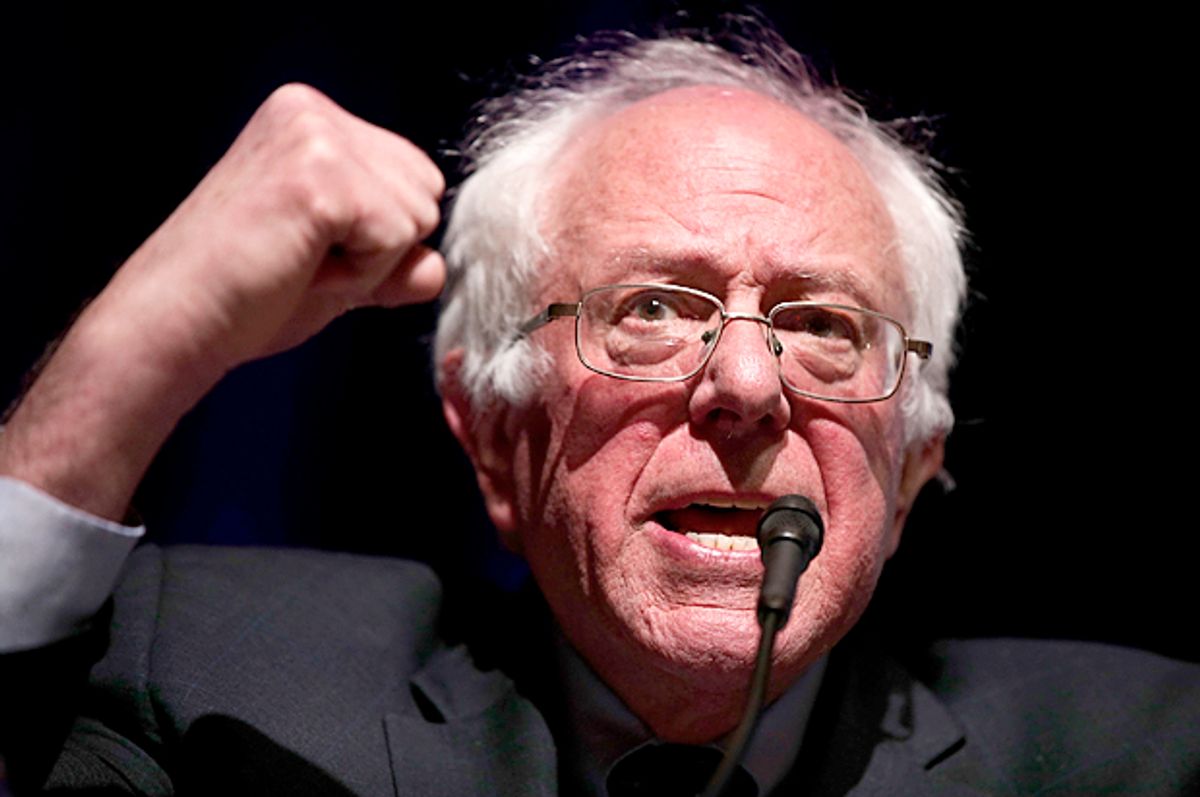In proposing the Medicare for All Act of 2017, Sen. Bernie Sanders of Vermont has forced the modern Democratic Party to confront a basic question: How far is it willing to go to guarantee health care for all Americans?
The bill is not likely to pass a Republican-controlled Congress, according to The Washington Post. Nevertheless, as Sanders explained to the Post, "this is where the country has got to go. Right now, if we want to move away from a dysfunctional, wasteful, bureaucratic system into a rational health-care system that guarantees coverage to everyone in a cost-effective way, the only way to do it is Medicare for all."
Only a few years ago, a bill as ambitious as Sanders' would have been relegated to the margins of the Democratic Party. Indeed, it hasn't even been eight years since President Barack Obama had to wrangle votes out of Democratic politicians to obtain their support for a much more modest health care reform bill, the Affordable Care Act.
But in the aftermath of Sanders' strong run against Hillary Clinton for the 2016 Democratic presidential nomination, potential candidates for 2020 have been aligning themselves with Sanders' popular measure. According to Kaiser Health News, 57 percent of Americans support it.
The presidential prospects placing themselves in Sanders' camp include Sens. Cory Booker of New Jersey, Al Franken of Minnesota, Kirsten Gillibrand of New York, Kamala Harris of California, Jeff Merkley of Oregon, Elizabeth Warren of Massachusetts and Sheldon Whitehouse of Rhode Island.
Though not a potential 2020 candidate, one surprising prominent Democratic voice also expressed interest in backing the bill — Sen. Joe Manchin III of West Virginia. Although he issued a statement saying that he was "skeptical that single-payer is the right solution," Manchin conceded earlier that "I want to know what happens in all the countries that have it — how well it works or the challenges they have," according to Bloomberg.
Because Manchin has been one of the few Democratic senators to openly support President Donald Trump on certain issues, his backing is a signal of just how far to the left the party has moved on this issue.
This isn't to say that all Democrats are on board with Sanders' plan. Senate Minority Leader Chuck Schumer of New York and House Minority Leader Nancy Pelosi of California have both avoided backing it, as have Sens. Sherrod Brown of Ohio, Chris Murphy of Connecticut, Patty Murray of Washington, Claire McCaskill of Missouri and Debbie Stabenow of Michigan, according to Politico. A common argument given (such as by Murphy and Stabenow) is that, with Republican efforts to repeal the Affordable Care Act not entirely dead, the party's focus should be on protecting the existing health care reforms.
The Sanders bill would cover all medical procedures for every American, sans co-payments, and doctors would be reimbursed by the government. Private insurers would exist to cover elective procedures like plastic surgery, but that's it.
"You’ve got to argue with insurance companies about what you thought you were getting," Sanders told the Post. "Doctors are spending an enormous amount of time arguing with insurers."



Shares